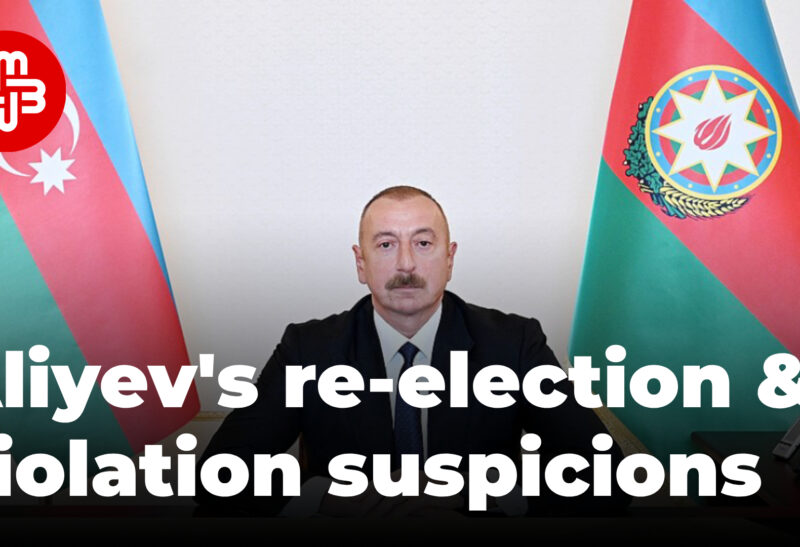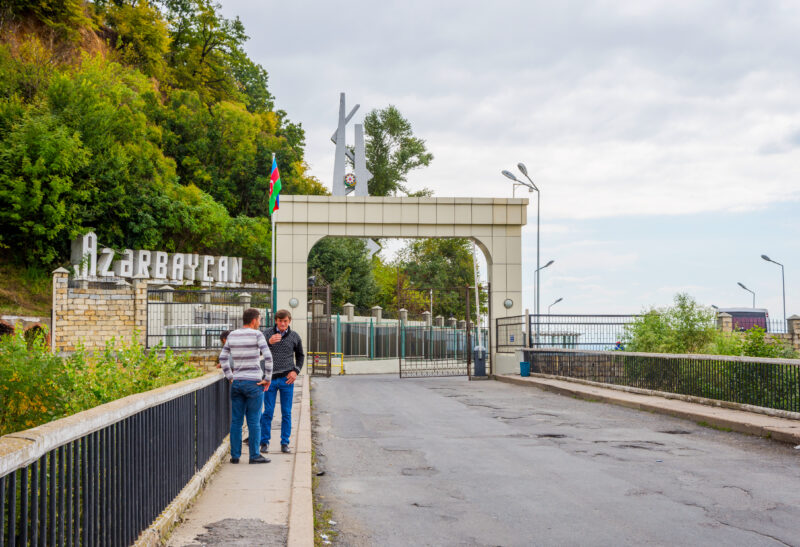In August 2023, a post made by lawyer Zibeyda Sadygova caused a stir in the Azerbaijani social media sphere:
“I received a call from the Bar Association, inviting me to a presidium meeting. When I asked why the meeting was called, they said a complaint had been filed against me. <…> What’s happening? Is it my turn? Defending human rights is not a crime!”
Zibeyda Sadygova has been a member of the Bar Association since 2012 and primarily works on politically motivated cases. Over the years, she has defended political activist Bakhtiyar Hajiyev, journalist Afghan Mukhtarli, and the currently detained prominent Azerbaijani economist and chairman of the Party of Democracy and Welfare, Gubad Ibadoglu.
The threat of removing Zibeyda Sadygova from the Bar Association has become the main topic of discussion in Azerbaijani civil society. She is far from the first lawyer specializing in political cases to face expulsion from the association or the threat of removal. Meydan TV explains why and how Azerbaijani authorities remove inconvenient defenders.
Expulsion from the Bar Association as a Pressure Tool
According to the “Law on Lawyers and Legal Activity,” only members of the Bar Association can practice law and be called lawyers in Azerbaijan. When a lawyer is expelled from the Bar Association, they automatically cease to be considered a lawyer and, consequently, cannot continue their legal practice.
However, very few lawyers in the country defend people persecuted for political reasons. In their view, the Bar Association suppresses such lawyers, limiting their activities, and expulsion from the association is one of the primary tools of this pressure.
“I said something along these lines at the time: ‘The state’s justice system reflects the state itself.'”
One of the first lawyers whose removal from the Bar Association sparked discussions in society was Khalid Bagirov, who provided legal defense for members of the civil movement NIDA, political exile Vidad Iskenderli, activist Ilkin Rustamzade, human rights defender Rasul Jafarov, and others arrested for political reasons.
During the 10 years Khalid Bagirov was a member of the Bar Association, he was temporarily suspended twice.
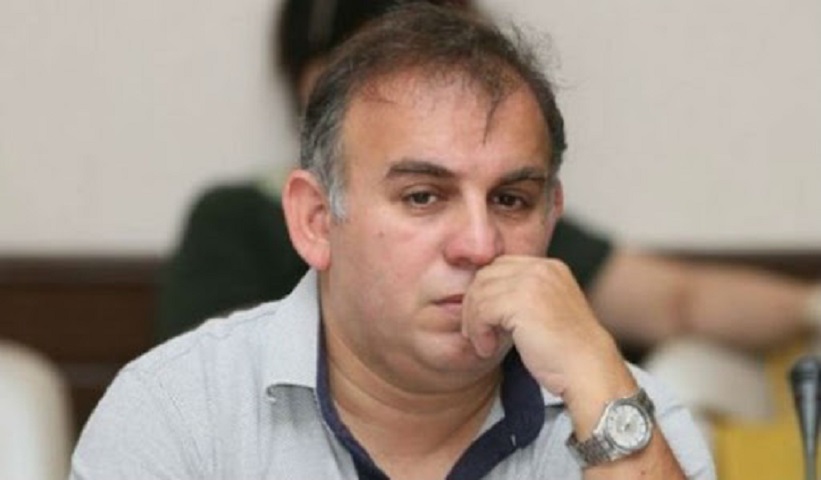
On January 13, 2011, one of Khalid Bagirov’s clients, Elvin Askerov, died in a hospital after being brought in from the 24th police precinct of Yasamal district in Baku. The Ministry of Internal Affairs stated that Askerov had fallen several times while trying to escape from the police, felt unwell at the precinct, and was taken to the hospital, where he passed away. However, Elvin Askerov’s mother, Roza Rafiyeva, claimed that he had been beaten to death. Khalid Bagirov, on the other hand, told journalists that he believed the Ministry of Internal Affairs’ version was a lie and that Elvin Askerov had been beaten to death at the police precinct. Photographs of Elvin Askerov bleeding in the hospital were published in local media.
Former Chief of the Baku City Police Department, Rafiq Abbasov, filed a complaint against Khalid Bagirov with the Bar Association, alleging that Bagirov had slandered the police. According to the lawyer, it all stemmed from his refusal to drop the case.
“I want to inform the public that I will not back down from this case and will defend Elvin Askerov’s family in the courts and other authorities,” the lawyer said at the time.
The Bar Association upheld the complaint, and in September 2011, Khalid Bagirov was suspended from professional practice for one year. Bagirov himself considered both the decision and the presidium of the Bar Association that made it to be illegitimate because the presidium’s term of office had already expired at the time of the decision.
The first article of Azerbaijan’s “Law on Lawyers and Legal Activity” states that the legal profession is an independent legal institution responsible for the professional protection of rights. However, according to Khalid Bagirov, since the Bar Association does not operate independently, it violates this law. In his opinion, while the concept of a unified bar association exists in global practice, these associations are typically independent and do not create similar obstacles for lawyers.
“If there were two or even three Bar Associations in Azerbaijan, all three would still be in a government-dependent position,” says Khalid Bagirov. “The problem is not that there is only one Bar Association but that this Bar Association is not free. Lawyers don’t even get to elect the Bar Association’s chairman. The chairman is appointed directly from the presidential apparatus.”
The last legal case in which he acted as a lawyer was the trial of the chairman of the REAL Party, Ilgar Mammadov, in the Sheki Court on serious charges in 2015.
“At that time, I said something like this: ‘As the state, so is the judiciary. If Azerbaijan had a just judicial system, the Sheki Court for Serious Crimes could not have issued such a verdict against Ilgar Mammadov, and that judge could not have been a judge at all,'” Bagirov recounts in an interview with Meydan TV.
The Bar Association suspended his legal practice.
Bagirov was unable to challenge this decision in local courts, so he filed a lawsuit with the European Court of Human Rights (ECHR). The European institution found a violation of the lawyer’s rights and ordered the restoration of Bagirov’s lawyer status. According to Khalid Bagirov, no one has contacted him to date regarding the enforcement of the ECHR judgment.
“They said that I was giving a political tint to the case.”
Another lawyer who became undesirable to the Bar Association was Neymat Kerimli. He also serves as the deputy chairman of the opposition party “Musavat.” During his legal career, Kerimli defended members of the “Musavat” party and the National Council of Democratic Forces, such as Tofig Yagublu, the chairman of the “Musavat” party Arif Gadjily, members of the “National Front of Azerbaijan” party Elhan Aliyev and Zamin Salaev, former political prisoner Asif Yusifli, and journalist Afghan Mukhtarli.
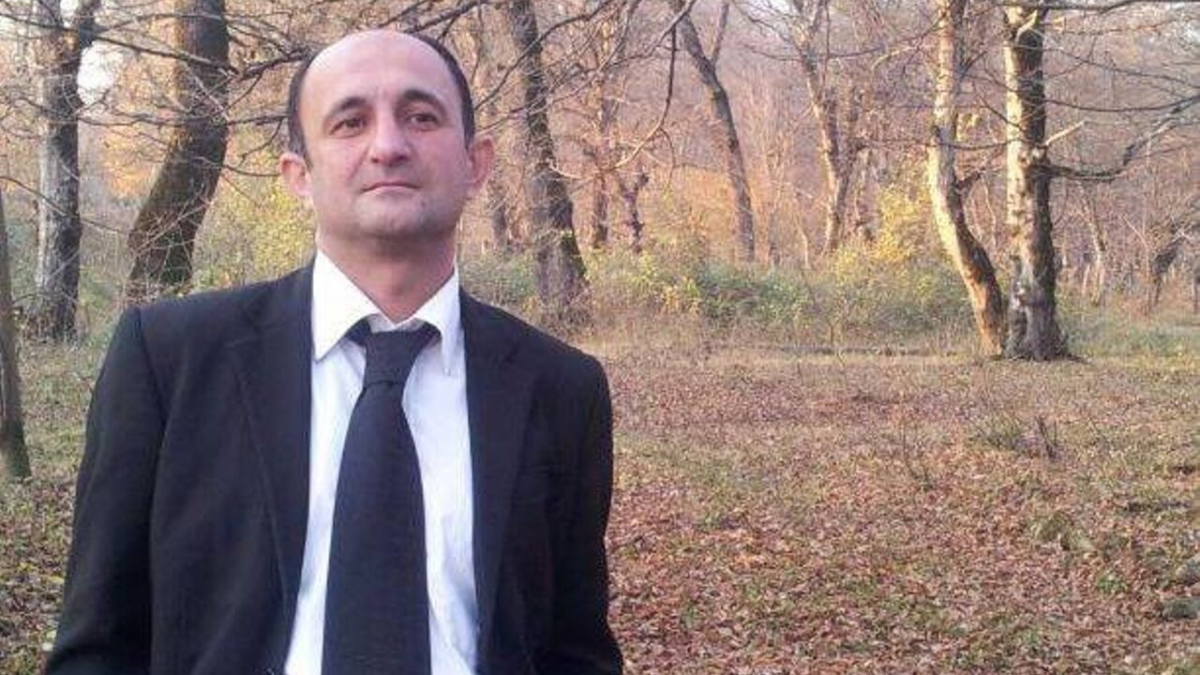
It was due to his involvement in Afghan Mukhtarli’s case that Neymat Kerimli was excluded from the Bar Association in 2018. In 2017, the journalist, who was residing in Tbilisi at the time, was arrested on charges of illegally crossing the Azerbaijani state border. The journalist claimed that he had been abducted from Tbilisi and forcibly taken to Azerbaijan due to his journalistic investigations into the Azerbaijani government. International human rights organizations recognized Mukhtarli, who was sentenced to six years in prison that same year, as a political prisoner. He was only released in 2020.
After the court hearing, in interviews with the media, Neymat Kerimli stated that his client had been abducted at the request of the Azerbaijani government. Based on his words, in October 2018, the Prosecutor General’s Office filed a complaint with the Bar Association.
“In October 2018, Rustam Usubov, the First Deputy Prosecutor General, turned to the Bar Association regarding the defense of Afghan Mukhtarli and claimed that the fact of Mukhtarli’s illegal border crossing had already been proven. Neymat, according to him, is saying that he was abducted from Tbilisi, giving a political tint to the case, and asserting that Afghan’s arrest is related to his political activities,” Kerimli recounts.
The Bar Association suspended Neymat Kerimli from professional practice for one year. In 2021, the European Court of Human Rights (ECHR) recognized Kerimli’s exclusion from the Bar Association as a violation. The lawyer was able to be reinstated in the Bar Association and regain his lawyer status only in 2022.
According to Neymat Kerimli, the Bar Association shows bias against lawyers defending human rights and makes decisions in the government’s direction.
“In turn, the government wants those involved in political activities to remain without protection, so that their complaints do not reach the ECHR, and international organizations remain unaware of everything,” the lawyer says in an interview with Meydan TV.
“I received instructions to exclude me from the Bar Association.”
Another lawyer who has often encountered problems with the Bar Association is Elchin Sadygov. He has been a member of the Bar Association since 2011 and is known for his role as a defender in cases related to media freedom, human rights, and torture. He has represented journalists such as Polad Aslanov, Avaz Zeynally, Fikret Faramazoglu, and Afghan Sadygov, as well as political activist Giyas Ibrahim and the late political activist Bayram Mammadov.
In July 2023, the Bar Association’s presidium decided to appeal to the court and seek the revocation of Sadygov’s lawyer status. The lawyer explained this decision in interviews with the media as follows:
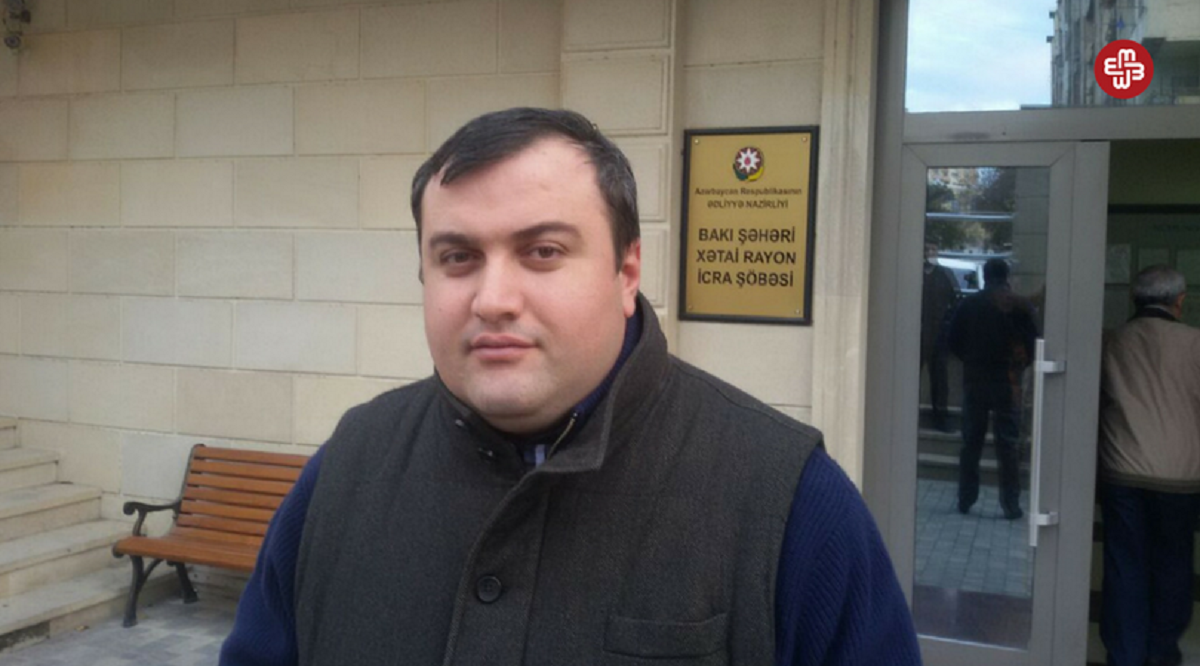
“Lately, I have been speaking out against torture, and I have disclosed facts of torture on my Facebook page to prevent it. I have also secured the release of several citizens. That’s why I received instructions to exclude me from the Bar Association.”
After the lawyer brought attention to his situation and received support from civil society representatives and ordinary citizens, the disciplinary proceedings against him were suspended.
But the story doesn’t end there. In 2017, Sadygov was defending journalist Elchin Ismayil. However, the preparatory hearing was held without the lawyer’s participation. When the lawyer attempted to challenge this decision, he was accused of disrupting the court session. At that time, the Bar Association’s presidium did not take disciplinary action against Sadygov.
“I was excluded from the Bar Association as if by order, and then reinstated in the same manner.”
The exclusion of lawyers who advocate for human rights always generates public discussions. Shahla Humbatova is no exception.
Shahla Humbatova has been a member of the Bar Association since 2014. She has acted as a defender for the arrested blogger Mehman Huseynov, the chairman of the REAL Party Ilgar Mammadov, and civil activist Bakhtiyar Hajiyev.
Humbatova was excluded from the Bar Association in November 2019. In her opinion, the main reason for her exclusion was her active involvement in the so-called “Ganja case” – the legal proceedings related to the case of Yunis Safarov and nine other individuals accused of an armed attack on the executive authority head of Ganja, Elmar Veliev, in 2018.
In 2020, Shahla Humbatova was awarded the International Women of Courage Award, presented to her by U.S. Secretary of State Mike Pompeo and First Lady Melania Trump at a ceremony in Washington, D.C. This award is presented annually to women who demonstrate bravery, often at great personal risk, in advocating for peace, justice, human rights, gender equality, and the advancement of women’s rights.
After receiving the award, Shahla Humbatova stated in interviews with local press: “I was punished in Azerbaijan and honored in the United States.”

In May 2021, U.S. Secretary of State Antony Blinken issued a statement in support of Shahla Humbatova, and in the same month, she was reinstated in the Bar Association.
Shahla Humbatova does not view her reinstatement in the Bar Association as a cause for celebration. She stated, “I once again realized that this happened not according to the laws of my country but under pressure from international organizations and another country’s government. I was excluded from the Bar Association as if by order, and then reinstated. There is nothing to be happy about.”
“A lawyer is not someone’s press secretary”
Chairman of the Bar Association, Anar Baghirov, declined to comment on the allegations of bias against lawyers handling politically motivated cases when approached by Meydan TV. Earlier, Baghirov wrote on social media that “a lawyer should refrain from giving interviews about cases they are handling, and ideally, provide standard answers like ‘I said what I wanted to say in the courtroom.'”
He continued, “Suppose someone who is in prison communicates through their lawyer that they have been tortured. The lawyer should contact the relevant authorities regarding this, using legal means. Let this situation be investigated. Turn to law enforcement agencies. First and foremost, an examination should be conducted to establish the facts of torture. If a lawyer simply comes and tells the press that, according to his client, torture has been applied, it is irresponsible,” as stated by Anar Baghirov.
Yalchin Imanov is one of the lawyers “punished” precisely for communicating with the press. Throughout his 10-year career, Yalchin Imanov has defended journalist Khadija Ismayil, whose arrest was declared illegal by international human rights organizations, as well as Mamed Ibrahim, an adviser to the chairman of the Popular Front Party of Azerbaijan, members of the “Muslim Unity” movement arrested in connection with the so-called “Nardaran case.”
Imanov was excluded from the Bar Association in November 2017 after he told journalists that his client, Abbas Hussein, a member of the board of the “Muslim Unity” movement, was being subjected to torture in a closed penitentiary institution. Imanov was unable to challenge the presidium of the Bar Association’s decision in local courts, and his case is currently pending before the European Court of Human Rights (ECHR).

Yalchin Imanov has also filed a complaint regarding torture against Abbas Hussein. However, local courts did not properly investigate it, leading to the complaint being submitted to the ECHR, which issued a relevant judgment in February 2023. The Azerbaijani government acknowledged that the complaint about torture was not thoroughly examined.
Yalchin Imanov states that this provides grounds to challenge his exclusion from the Bar Association, but he is awaiting the ECHR’s consideration of his case.
Irada Javadova, the only member of the Presidium of the Bar Association who voted against Yalchin Imanov’s exclusion, was herself excluded from the Bar Association in 2018 after she wrote an open letter to the former Minister of Internal Affairs, Ramil Usubov, regarding the detention of her client by the Main Directorate for Combating Organized Crime. Irada Javadova has been a member of the Bar Association since 2010.
“Such interviews are not needed”
The exclusion of lawyers who are active in defending human rights and political activists in Azerbaijan has raised concerns about the independence of the legal profession and access to justice in the country. Some lawyers have been excluded from the Bar Association, preventing them from practicing law, often based on allegations that they brought a “political tint” to their cases or gave interviews to the press.
Neymat Kerimli, for instance, believes that the Bar Association disapproves when lawyers are open to the press. In October 2019, during a rally of the Popular Front Party of Azerbaijan and the National Council, police detained Tofiq Yagublu, a member of the Musavat party. While serving a 30-day administrative arrest for allegedly resisting the police, Yagublu met with his lawyer, Neymat Kerimli, and informed him that he had been beaten and insulted by the police. After this meeting, when Neymat Kerimli spoke to journalists outside the detention center and relayed Yagublu’s words about the beatings and insults, this “frankness” did not sit well with the Bar Association. Kerimli mentioned that although the Bar Association did not take disciplinary measures, he received an oral warning that “such interviews are unnecessary.”
“Azerbaijan ranks one of the last among the member countries of the Council of Europe in terms of the ratio of the number of lawyers to the population”
In October 2017, the Azerbaijani parliament made amendments to the “Law on Lawyers and Advocacy,” abolishing the institution of legal representation. Previously, the law allowed ordinary citizens, who were not lawyers, to represent individuals in court cases. This was much cheaper than hiring a professional lawyer. However, after the parliament’s amendments, only members of the Bar Association have access to represent individuals in court cases. Yalchin Imanov commented on this change, stating that it could lead to problems for people who lack sufficient financial means. Due to both financial constraints and a shortage of lawyers, not everyone can afford legal representation. Imanov also emphasized that Azerbaijan ranks among the last in the Council of Europe member states in terms of the ratio of lawyers to the population.
In a report published by the Chairman of the Bar Association, Anar Baghirov, in 2023, it was stated that the Bar Association currently has 2,300 lawyers. According to data from the State Statistics Committee, as of January-May 2023, the population of Azerbaijan was 10,148,000 people. This means there is approximately one lawyer for every 4,400 people.
“While under administrative arrest, I learned that my lawyer was preparing to be expelled from the Bar.”
Afiaddin Mamedov, the chairman of the Workers’ Desk Confederation of Trade Unions, has been subjected to administrative arrest three times in the first eight months of 2023. This amounts to a total of three months in detention. Afiaddin, who considers his arrests unlawful and politically motivated, is represented by lawyer Zibeyda Sadygova.

He learned about the potential revocation of his lawyer’s license while serving his third administrative arrest. In his opinion, the Azerbaijani government aims to eliminate independent lawyers who defend political figures and activists. By excluding these lawyers from the Bar Association, politicians and activists will be deprived of the right to legal representation, their complaints will not be referred to the European Court, and no one will be able to speak about them while they are in custody.
For many years, local media and civil society in Azerbaijan have obtained information about arrested opposition figures and activists through their lawyers. Sometimes, detainees are not even allowed to meet with family members, and only lawyers can see them, find out whether they have been subjected to torture, and inform the public about it.
“The exclusion of lawyers from the Collegium is a problem that concerns not only the lawyers themselves.”
The most discussed recent meeting of the Collegium of Lawyers was dedicated to Zibeyda Sadygova.
After Sadygova announced on social media that she had been summoned to a meeting, public and political activists, as well as ordinary citizens, started posting in her defense, sharing the opinion that Zibeyda Sadygova is the next lawyer to be punished by the Collegium for defending human rights.
On September 1, 2023, Zibeyda Sadygova appeared at the Collegium’s meeting accompanied by journalists. The meeting lasted for about an hour. The court established that Zibeyda Sadygova did not commit any legal violations. However, according to Sadygova, she was reprimanded for announcing the invitation to the Collegium’s meeting based on a complaint in social media and for speaking to the press. The lawyer attempted to explain to the presidium that she was not aware of what would happen at this meeting and that if she had been better informed, she would not have felt the need to speak to the media.
Human rights activists believe that pressure on independent lawyers is pressure on civil society as a whole.
“By incapacitating lawyers who defend socio-political activists in Azerbaijan, they are thus attempting to incapacitate these activists themselves,” says Afyaddin Mamedov. “The exclusion of lawyers from the Collegium is a problem that concerns not only the lawyers themselves but also socio-political activists and the political system of Azerbaijan as a whole. This problem needs maximum attention and should not be allowed to go unchecked.”
Supported by “MediaSet”

